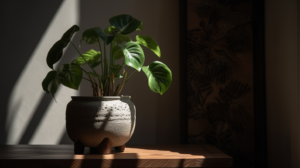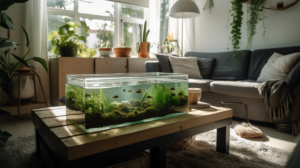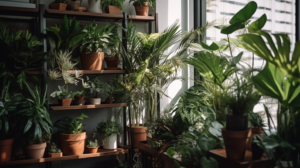Choosing the Right Soil and Potting Mix for Your Indoor Garden
A Comprehensive Guide
When it comes to indoor gardening, one of the essential factors to consider is the quality of your soil and potting mix. The right soil and potting mix can provide your plants with the necessary nutrients, support root growth, and help maintain proper moisture levels. In this guide, we will discuss how to choose the right soil and potting mix for your indoor garden, answer some common questions, and recommend popular products to ensure your plants thrive.
Understanding Soil Quality and Potting Mixes
Soil quality is a vital factor in the success of your indoor garden. A high-quality soil will have a balanced mixture of nutrients, minerals, and organic matter that supports plant growth. To identify good soil quality, look for the following characteristics:
- Loose, well-draining texture that allows water and air to reach plant roots easily.
- A blend of organic matter, such as compost, that provides essential nutrients for plant growth.
- Neutral to slightly acidic pH, usually between 6.0 and 7.0, which is ideal for most indoor plants.
Indoor gardening soil differs from outdoor gardening soil because it needs to be lighter and more porous to promote proper drainage and aeration. A good potting mix for indoor plants typically includes ingredients like peat moss or coco coir, perlite or vermiculite, and compost or aged bark.
Maintaining Soil Quality in Your Indoor Garden
Once you have chosen the right soil and potting mix for your indoor garden, it’s essential to maintain its quality to ensure your plants’ continued growth and health. Here are some tips for maintaining soil quality:
- Water your plants properly, allowing the soil to dry out slightly between waterings to prevent overwatering and root rot.
- Use a balanced, slow-release fertilizer or organic amendments like compost to provide nutrients and maintain soil fertility.
- Check the soil pH regularly and adjust as needed with lime or sulfur to keep it within the ideal range for your plants.
- Aerate compacted soil by gently breaking it up with a fork or your fingers to promote airflow and root growth.
Regularly changing the soil in your indoor garden is not always necessary, but it can be beneficial in some cases. If your plants show signs of poor growth or nutrient deficiencies, you may need to replace the soil with a fresh mix. Generally, you should consider changing the soil every 1-2 years, depending on the specific needs of your plants and the quality of the potting mix you are using.
Recommended Soil and Potting Mix Products for Indoor Gardening
There are many high-quality soil and potting mix products available for indoor gardening. Here are some popular options to consider:
- Miracle-Gro Indoor Potting Mix: Specially formulated for indoor plants, this mix contains a blend of peat moss, perlite, and coconut coir to promote healthy root growth and moisture retention.
- Black Gold All Purpose Potting Soil: This all-purpose potting soil contains a mix of peat moss, aged bark, and perlite, providing a well-draining and nutrient-rich environment for your indoor plants.
- FoxFarm Ocean Forest Potting Soil: This premium potting soil combines earthworm castings, bat guano, and fish meal to create a rich, organic mix that promotes healthy plant growth and provides essential nutrients.
- Pro-Mix Premium All Purpose Mix: This versatile mix includes peat moss, perlite, and limestone to provide a well-draining and pH-balanced environment for a wide range of indoor plants.
- Espoma Organic Potting Mix: An all-natural, organic option, this mix contains peat moss, aged forest products, and humus to support healthy root growth and nutrient uptake in your indoor garden.
Choosing the right soil and potting mix for your indoor garden is crucial for the health and success of your plants. By understanding the characteristics of high-quality soil, maintaining soil quality, and selecting the best products for your specific needs, you can create a thriving indoor garden that will bring beauty and enjoyment to your home.
Choosing the Right Soil and Potting Mix for Your Indoor Garden FAQs
1. How can I tell if my potting mix has gone bad?
2. Can I use garden soil for my indoor plants?
3. What is the best soil for indoor herbs?
4. Should I add fertilizer to my potting mix?
5. How can I improve the drainage of my potting mix?
Related Articles


